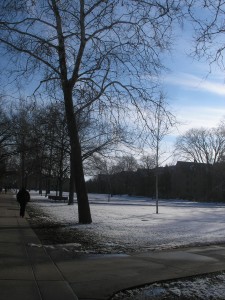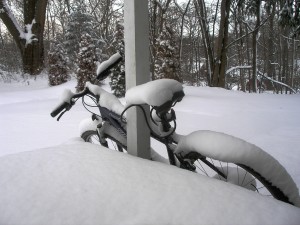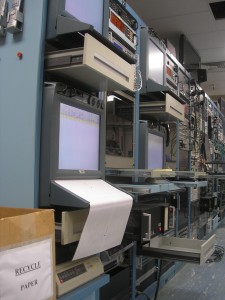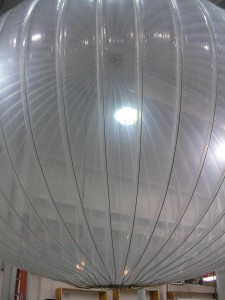A selection of photos: Winter




A selection of photos: The start of spring



Fluffy pancake and maple syrup

Note:
At present, I write here infrequently. You can find my current, regular blogging over at The Deliberate Owl.
Monday, March 26, 2012







Fluffy pancake and maple syrup

Monday, March 26, 2012 - tags: art photography travel
Sunday, July 24, 2011
Earlier this month, everyone in my lab took a trip to NASA Wallops Flight Facility and Assateague State Park to test GROVER2 on the beach. There's a video of some of the lab's preparations over on Geeked on Goddard - take a look! Although I'm not specifically working on GROVER2 (I'm working on the LIDAR-assisted robotic group exploration project, as briefly mentioned earlier), it was a good trip.

A control center we saw while touring the Wallops facilities

One of the ballons constructed by the Wallops balloon program researchers


We were on the beach bright and early! I took a bunch of photos of the sunrise

Sunday, July 24, 2011 - tags: gsfc11 nasa photography travel
Sunday, September 19, 2010

I first attended the conference two years ago, the year the free bookbags were tan-brown canvas, bright poster graphic plastered over the front, black adjustable strap, not enough pockets.
The appearance of the bag is important.
You see, last year, I missed the conference because I was studying abroad in Australia. On a friend's recommendation, my GHC bookbag was the bag I'd taken with me down under for carting notes and texts across campus. My friend said, maybe it'll work as a conversation starter!
The scene: Day Two of international student orientation. The crowd of 18 to 24-year-olds, hailing from every country you can name and probably a few you can't, was in mass exodus from a lecture hall to a large space in the Wentworth building, intrigued by the notion of morning tea. As I was walking across the footbridge to Wentworth, a young woman came up to me.
"Were you in Colorado for the conference this past year?" She pointed to my bag. I couldn't help but grin, of course: there I was, halfway around the globe, and I had a pre-made connection to someone! It turned out we were in the same Number Theory & Cryptography course, too; it was thanks to our six-hour-a-day study marathons that I vanquished the final exam.
A conversation starter, indeed.
Needless to say, I'm looking forward to this year's conference!
Wednesday, December 9, 2009
I recently returned to the US from Australia. The 14-hour flight took me from Monday morning in Sydney to Monday morning, again, in L.A. Crossing the date line messed up my sense of time enough without the added bonus of thinking I should be heading to bed just as the sun began to climb into the California sky.
You may be familiar with the concept: Jet lag. The catch-all name for circadian misalignment, the disruption of sleep cycles and circadian rhythms. If you've had the pleasure of crossing time zones in a jet plane, whether it was a mere three-hour hop from one coast of the US to the other or a trip to another continent, chances are, you've experienced some amount of jet lag.
Normally, two systems--the homeostatic system and the circadian system--work together to produce a 24-hour sleep cycle. During the day, the homeostatic system slowly accumulates a 'sleep drive,' a desire to sleep that increases as a function of time spent awake. The circadian system generates an alerting signal in opposition to this sleep drive, which, during the day, keeps a person from feeling increasingly sleepy. An hour or two before bedtime, this signal subsides, and s/he realizes it's time to hit the pillow. The sleep drive dissipates as a person sleeps and by morning (assuming a full night's rest and possibly some coffee), s/he will be feeling alert and ready to go again.
Robert Sack wrote a delightful paper [PDF] on jet lag, by the way, which is where I'm getting much of my information.
So we've got a nice cycle of sleep. Jet lag is what happens when the homeostatic and circadian processes are misaligned. For example, the circadian system may signal a person to be alert when it's not actually morning, or may be reduced during daytime hours, causing daytime sleepiness because the homeostatic sleep drive is no longer cancelled out.
How do you beat jet lag? Robert Sack lists three primary approaches:
Let's start with the first one, as it turns out to be the most complicated.
The two most effective ways to reset the body clock are 1) through bright light exposure, and 2) timed melatonin administration. (But see the end of this post: fasting can also reset the body clock.)
Light is one of the most important cues about time of day and has the greatest effect on circadian timing (much smaller effects are seen from regular activities and meals, for example). Studies have shown that without light cues, totally blind people tend to have free-running circadian rhythms with an average period of 24.5 hours, instead of the usual 24. If a person is exposed to bright light early in the day, the person's internal clock is reset to an earlier time; if exposure is instead in the evening, the internal clock is reset to a later time. Brighter light has more of an effect (such as the sun, at 3000 to 10,000 lux), though lower intensities (e.g., 100-550 lux) can produce changes.
Artificial light sources can be used to supplement daylight, to help reset a person's internal clock to the correct new time zone when traveling. Alternatively, a person could wear very dark glasses, as light avoidance could help minimize the problems of light exposure at the wrong time of day or night.
Melatonin is a hormone that has been linked to the regulation of circadian rhythms and sleep cycles [PDF]. Melatonin is secreted by the pineal gland at night; secretion is suppressed by light exposure, and as such, the hormone can be thought of as a "darkness signal." If doses of melatonin are administered in the morning, circadian rhythms will be shifted later; evening doses shift rhythms earlier. Timing of the doses is more important than amount per dose, though it remains to be seen what the optimal dose and optimal time of administration is--trials have been done with doses from 0.5 to 10mg, at times ranging from three days before departure to five days after arrival in the new time zone.
If doses of melatonin are combined with light exposure, the results are what you might expect: synergistic if both are administered to produce a time shift in the same direction (both earlier or both later); antagonistic otherwise.
The second way to beat jet lag: Sleep at weird times. Slowly adjust your sleep schedule to match that of your destination, or keep your home sleep schedule for a while after you arrive. The problem with this is that your sleep-wake schedule won't match up with that of the people around you, and if you need to be awake for breakfast at 7am or for a meeting in the afternoon, your sleep schedule may interfere. Use this method at your own risk.
Lastly, we have sleep medicines. As you might guess, hypnotic medications combat insomnia and stimulants fight off daytime sleepiness pretty well, because by definition, that's what they do. Both benzodiazepine and non-benzodiazepine drugs have been shown to be effective in the first case; for the latter, the most common solution is to consume more coffee [PDF]. This works! In the study linked, subjects were treated with slow-release caffeine or with melatonin prior to a long eastward flight; the caffeine subjects were less sleepy than either melatonin or placebo. Granted, caffeine subjects also took longer to fall asleep later and awoke more frequently, but that may be a risk you have to take.
Light, melatonin, drugs, strange sleep schedules. Of course, the only solution that will always work is time. The homeostatic and circadian processes need to realign, and while the aforementioned ways of beating jet lag can fast track the process, it still takes time.
UPDATE: I was alerted by a friend of the existence further research of which I was unaware: Another way to reset your sleep-wake cycle is to stop eating. If you fast for about 12 to 16 hours, your body clock will reset, with whatever time you break your fast as morning. The Fuller, Lu, & Saper paper [PDF], published in Science, discusses the mechanism, though a more recent paper argues that the Fuller et al. results are inconclusive.